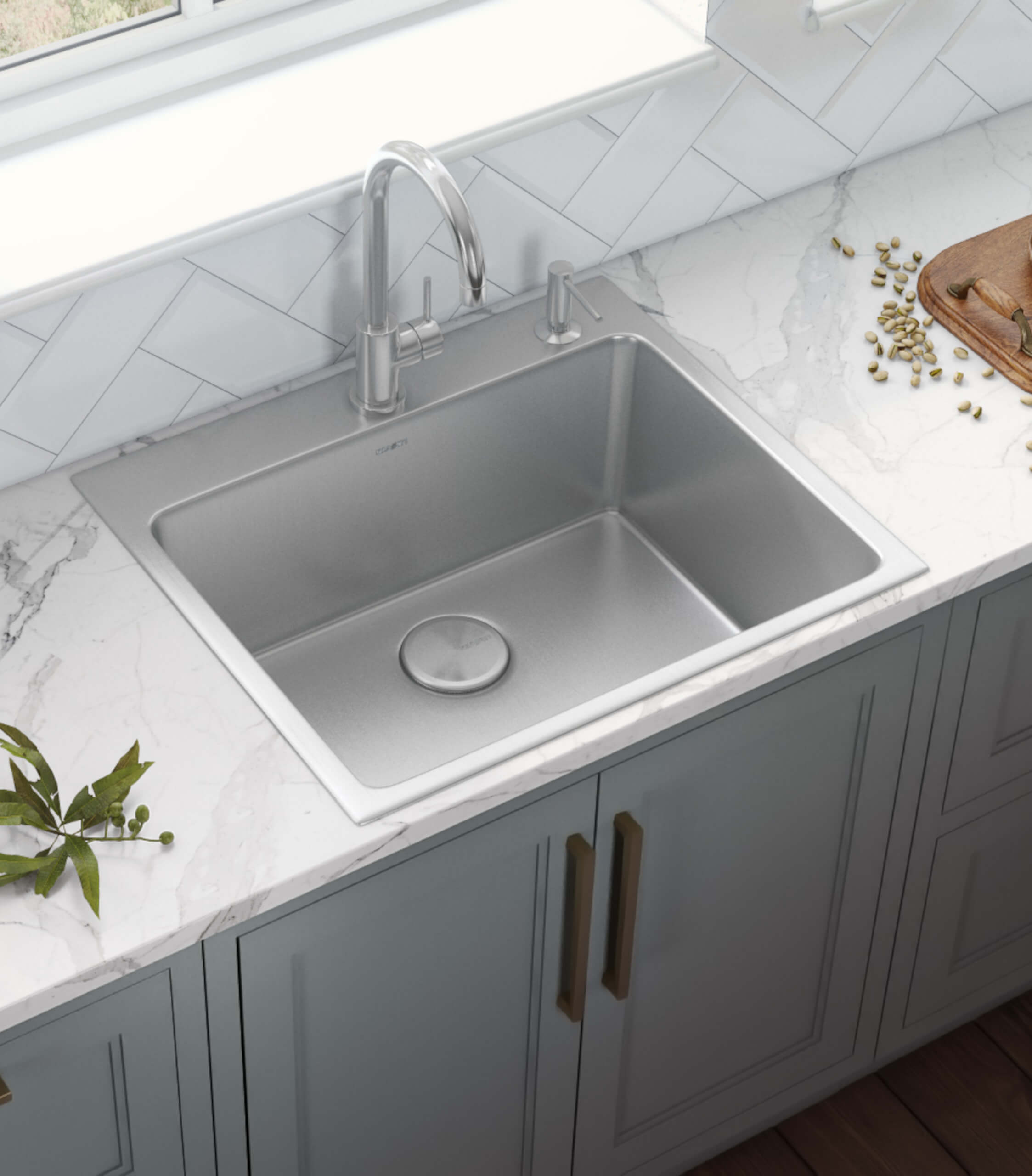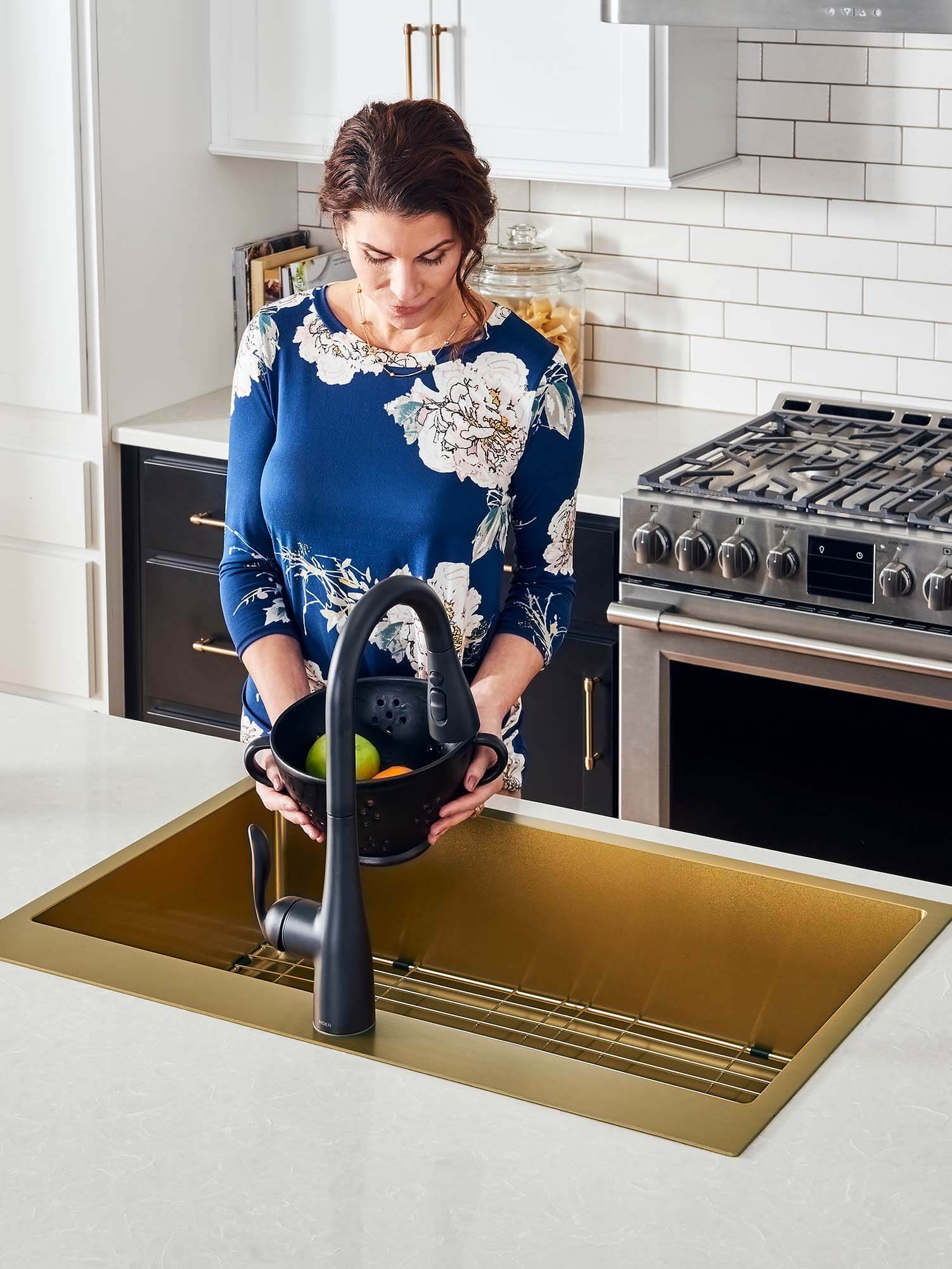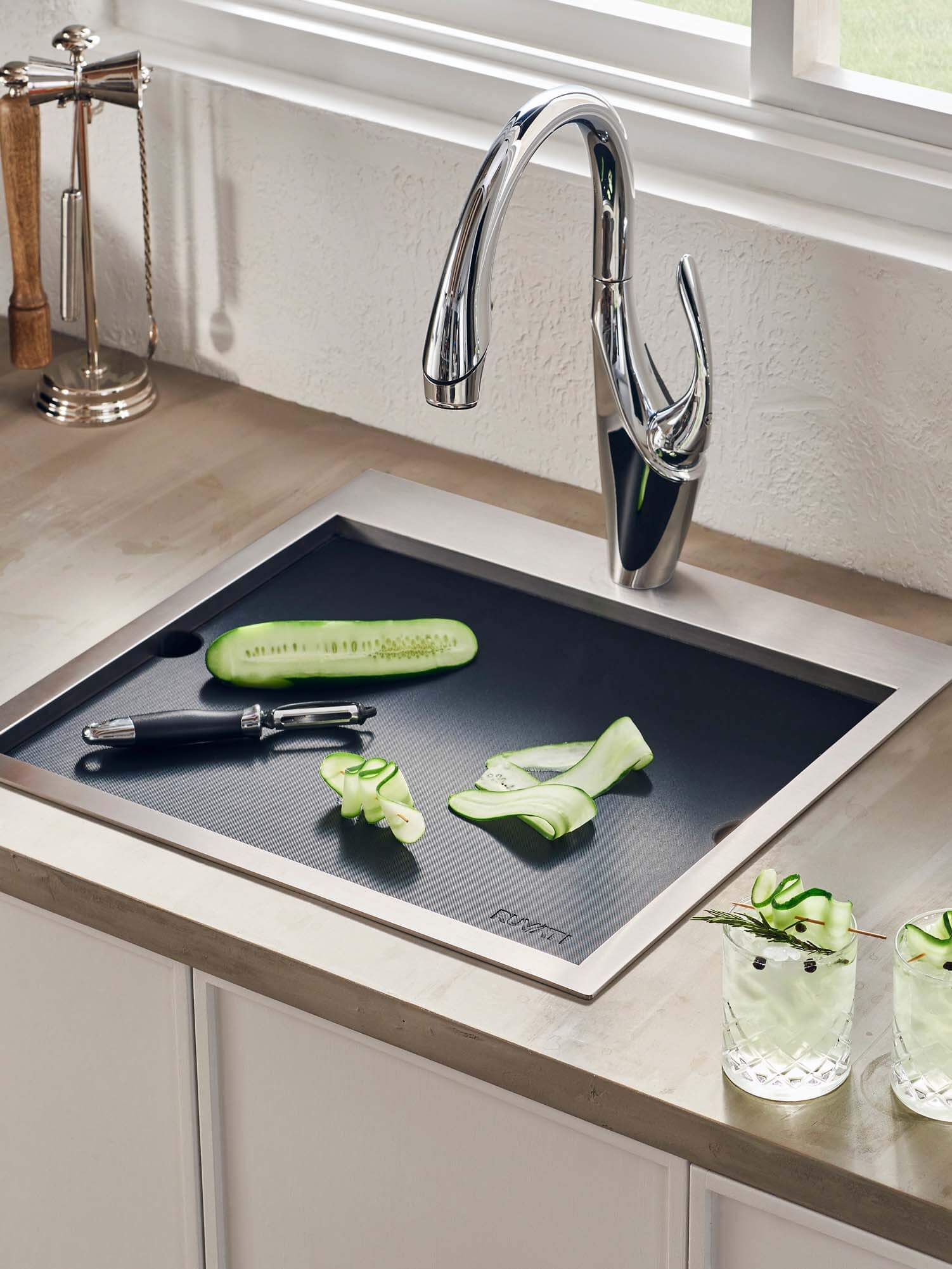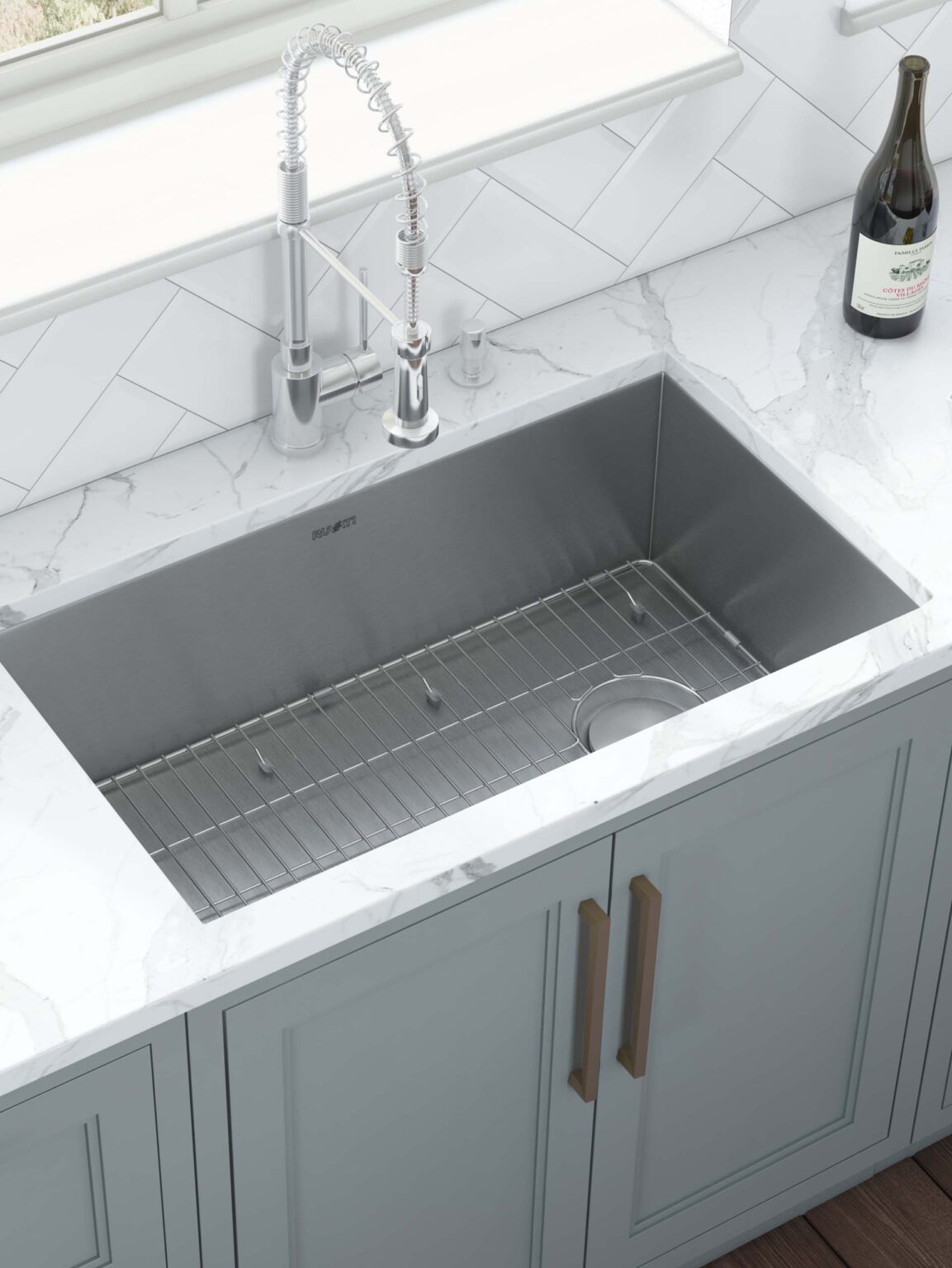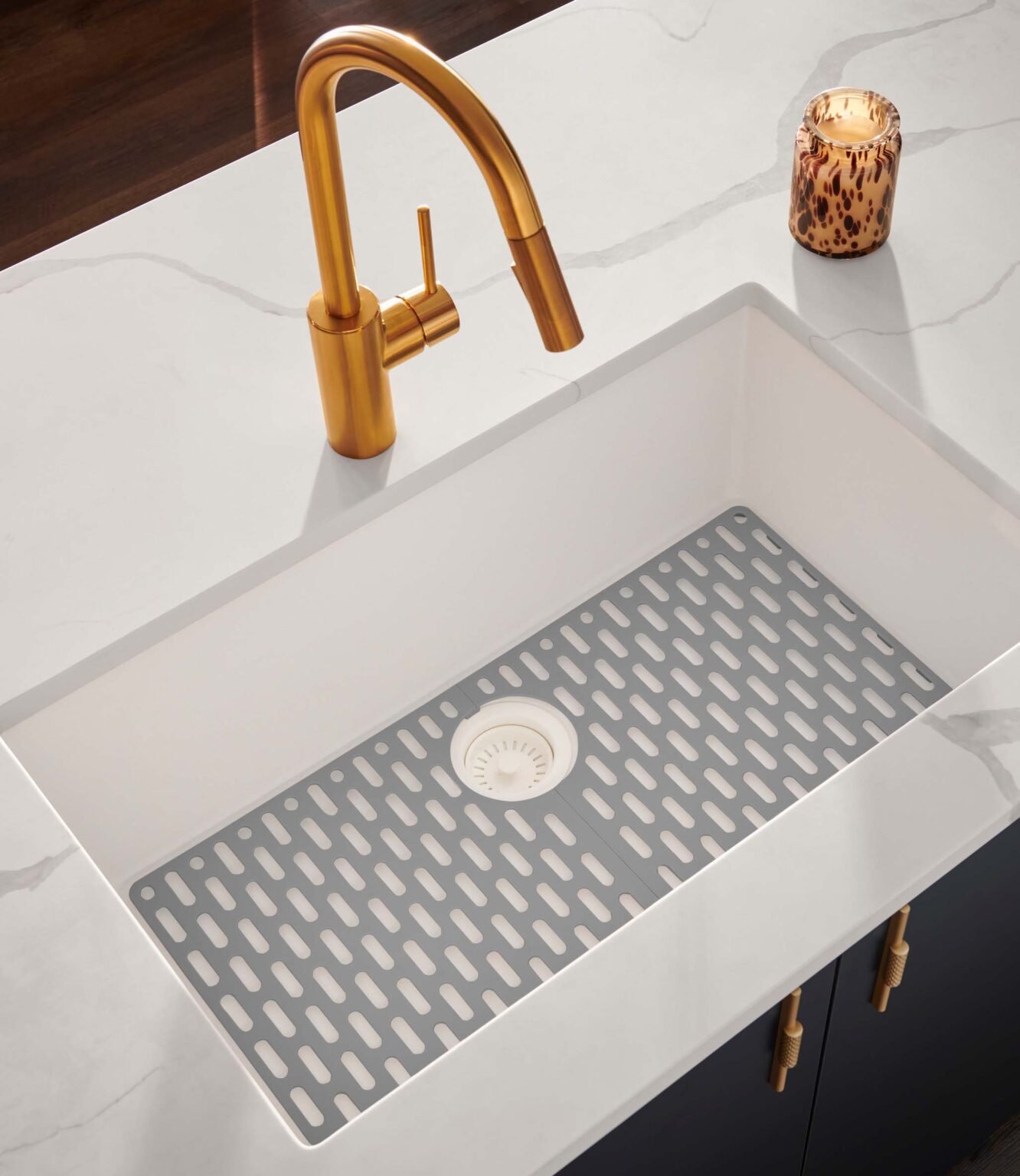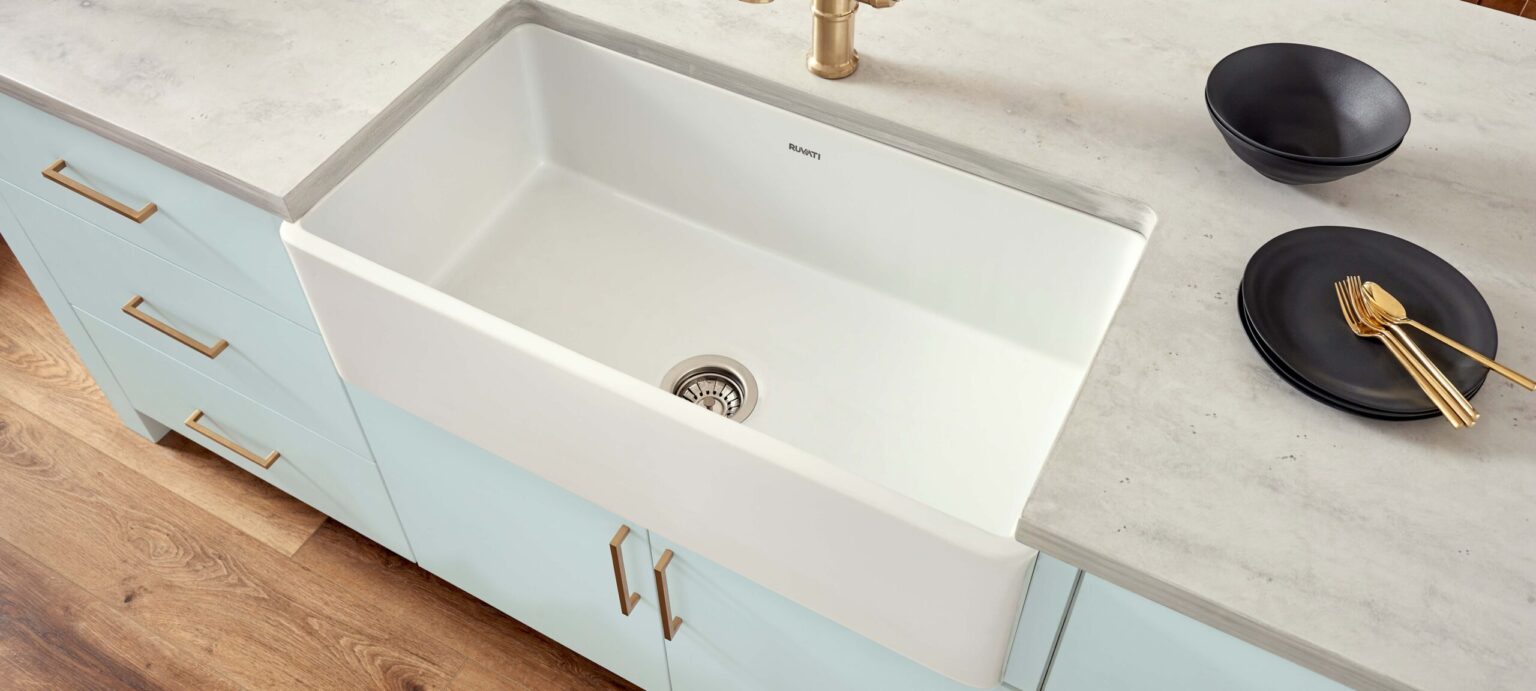Imagine you’re renovating your kitchen and have one item left to purchase: a sleek, durable stainless steel sink. But now you’re faced with a choice: 16 gauge or 18 gauge? No, we’re not talking about the size of the nails you put in a nailer. However, we’re sure the concept is similar since gauge refers to the metal thickness. In any case, it’s easy to get lost in the numbers. Still, they’re crucial to understanding the durability of a sink. This guide will help you navigate the world of 16 gauge vs 18 gauge, highlighting the pros and cons of each. You’ll gain insight into how these choices impact the functionality and price of your sink. With our help, you’ll confidently choose the right thickness for your sink needs.
Understanding the Difference in Thickness and Durability
In choosing between a 16 gauge and an 18 gauge stainless steel sink, it’s important to understand that the difference in thickness directly impacts the sink’s durability and functionality. The indicator refers to the thickness of the stainless steel, with a lower gauge indicating a thicker material. Due to its increased thickness, the 16 gauge stainless steel sink offers heightened durability. It’s less likely to dent or scratch, making it an excellent choice for high-traffic kitchens or commercial settings. Moreover, the added thickness provides better noise reduction, a feature you might appreciate if you aim to minimize kitchen noise.
On the other hand, an 18 gauge stainless steel sink, while thinner, still offers considerable durability. It’s a cost-effective choice if you’re seeking a decent quality sink for areas such as a shed, indoor garden area, craft room, and more. It’s ideal for places in the home without seeing the intense, constant use of a commercial-grade sink. Choosing the right thickness for your sink needs is a balance between durability, functionality, and cost. A 16 gauge sink might be your best bet if you prize resilience and noise reduction. However, if you’re looking for a budget-friendly, less durable option, an 18-gauge steel sink could suit your needs. When it comes to innovation, both gauges have their merits. Your requirements and demands should guide your choice between a 16 and 18-gauge sink, ensuring you get a product that blends innovation with functionality.
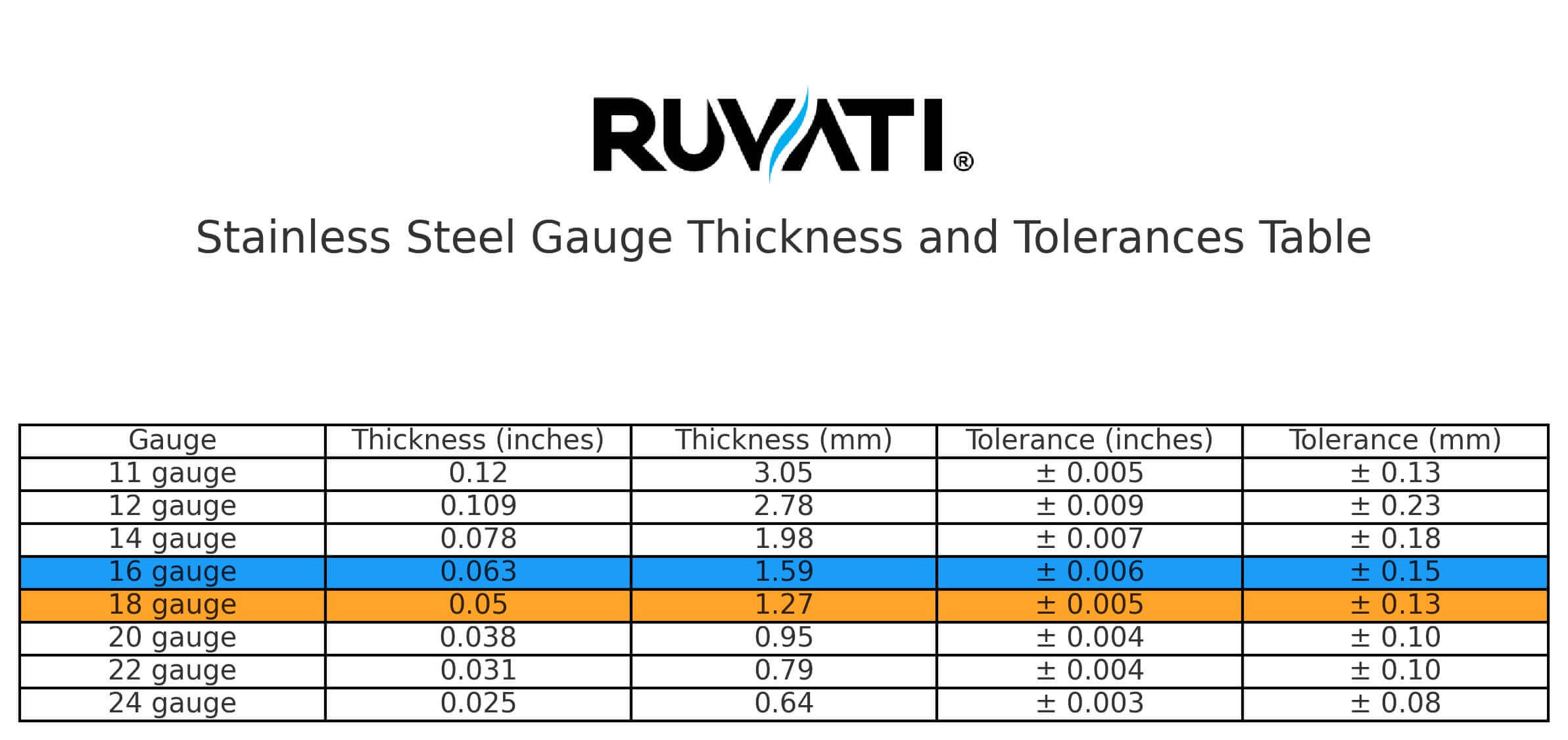
Thicker is Better: Choosing 16 vs 18 Gauge Stainless Steel Sinks
Despite the slight price difference, opting for a 16 gauge stainless steel sink over an 18 gauge one can be a smart move for your kitchen, considering its superior strength and durability. When comparing the durability of 16 gauge vs 18 gauge sinks, the thickness of the stainless steel used in the 16 gauge sinks gives it an edge over the 18 gauge ones.
The 16 gauge stainless steel sink is thicker and, hence, more resistant to denting and bowing from heavy pots and pans. It also offers better noise reduction, which can be a significant advantage if you frequently use your sink. The stainless steel in these sinks ensures they can withstand heavy usage over many years without showing signs of wear and tear. Consider your usage patterns when choosing between a 16-gauge and an 18-gauge stainless steel sink. If you frequently use large, heavy pots and pans or your sink sees a lot of usage, a 16 gauge sink would be a better choice. On the other hand, if your use is light to moderate, an 18 gauge sink may suffice.
Superior Corrosion Resistance: 16 Gauge Stainless Steel Sinks for Your Kitchen
When outfitting your kitchen, a 16 gauge stainless steel sink offers superior corrosion resistance, giving you peace of mind for years to come. These sinks are not only durable, but they also add a touch of modern elegance to any kitchen design. The extra thickness contributes significantly to their corrosion resistance, ensuring your sink needs are met for longer periods. When choosing the right thickness for your kitchen sink, it’s essential to consider the long-term benefits of investing in a 16-gauge sink. Not only will it stand the test of time, but it will also withstand the daily wear and tear of kitchen activities better than thinner sinks.
In terms of durability, 16 gauge sinks are a clear winner. They are less prone to dents and scratches and more resistant to high temperatures and heavy kitchen utensils. So, whether you’re washing a load of dishes or draining hot pasta, your sink will hold up to the task, no matter how demanding. The superior corrosion resistance of 16 gauge stainless steel sinks also makes them an eco-friendly choice. These sinks last longer, reducing the need for frequent replacements and contributing less waste to our environment.
Joint Strength: Differences Between 16 and 18 Gauge Stainless Steel Sinks
You’ll notice a significant difference in joint strength when comparing 16 and 18 gauge stainless steel sinks. This difference is crucial in determining the longevity and durability of your sink, directly impacting its resistance to wear and tear. So, understanding the nuances of 16 gauge vs 18 gauge is vital in choosing the right thickness for your sink needs.
The 16 gauge stainless steel sinks, being thicker, offer superiority in this category yet again. The joints in these sinks are less likely to give way under stress, reducing the risk of leaks and prolonging their lifespan. This makes 16 gauge sinks an excellent choice for high-use areas, such as commercial kitchens or busy households. On the other hand, 18 gauge stainless steel sinks, while still offering good joint strength, are slightly thinner. This means they might not withstand heavy usage as well as their 16 gauge counterparts. However, they’re still a robust choice for small household needs, balancing strength with cost-effectiveness.
Regarding the differences between 16 and 18 gauge stainless steel sinks, joint strength is a crucial factor to consider. While 16 gauge sinks provide higher collective strength, they’re generally more expensive. The 18 gauge sinks, while slightly less robust, offer a more economical choice for those not requiring heavy-duty use. To conclude, selecting the appropriate gauge is a crucial aspect of ensuring your sink meets your specific requirements. By understanding these differences, you’re better equipped to decide on the best stainless steel sink for your needs.
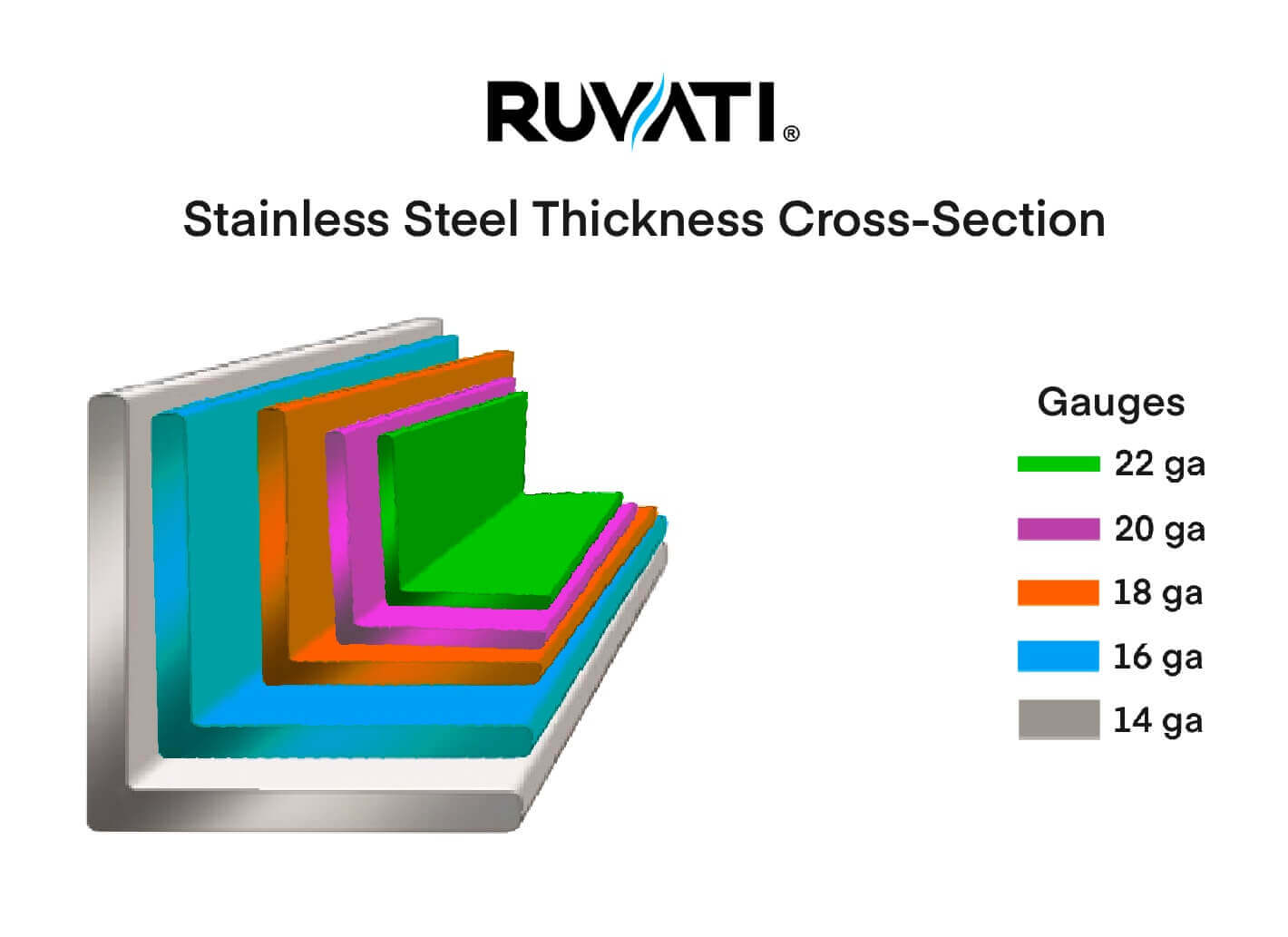
Best Gauge Number and Grade of Stainless Steel
In choosing the best gauge number and grade for your stainless steel sink, it’s crucial to consider your specific needs and the material’s durability. The gauge number refers to the thickness of the stainless steel, with a lower gauge indicating a thicker material. Regarding the grade of stainless steel, you’re looking at the chromium-to-nickel ratio, which impacts corrosion resistance and overall strength.
18 gauge stainless steel is often the best choice for most residential kitchen sinks. It offers a balance of durability and affordability, providing a sink that can withstand daily wear and tear without breaking the bank. If you’re looking for a more high-end option, consider a 16-gauge stainless steel sink. It’s thicker, thus more resistant to dents and damage, and often comes with a more luxurious finish. Your specific needs will also dictate the best grade of stainless steel for your kitchen sink. For instance, if you live in a coastal area with high humidity, a quality with a high chromium and nickel ratio, like 316 stainless steel, may be ideal due to its excellent corrosion resistance.
Frequently Asked Questions
What Are the Benefits of Using Stainless Steel Sinks in a Commercial Kitchen?
You’ll appreciate stainless steel sinks in your commercial kitchen due to their durability, rust resistance, and easy cleaning. They’re also sleek, enhancing your kitchen’s aesthetics. Plus, they’re recyclable, making them an eco-friendly choice.
How Does the Gauge of Stainless Steel Affect the Price of the Sink?
You’re selecting a sink, so consider the gauge. Lower gauge means thicker steel, hence higher cost. An 18-gauge sink is thinner and more affordable than a 16-gauge, but it’s less durable and potentially noisier.
Can I Use a Garbage Disposal With a 22 Gauge Stainless Steel Sink?
Yes, you can use a garbage disposal with a 22-gauge sink, but it’s not ideal. Thinner sinks, like a 22-gauge, are more prone to dents and dings, which the vibrations of a garbage disposal could exacerbate.
Are There Any Disadvantages to Using a Lower Gauge, Thicker Stainless Steel for My Sink?
While lower gauge, thicker steel provides more durability for sinks, it’s pricier than higher gauge steel. It might also be overkill for a garden area or craft room. These areas are often used once a month, but it’s ideal if you’re seeking robustness.
How Can I Tell the Quality of the Stainless Steel Used in My Sink?
You can determine your sink’s stainless steel quality by its gauge number and chromium-to-nickel ratio. Lower gauges mean thicker, higher-quality steel. Also, a higher nickel content indicates better corrosion resistance and durability. For more information on stainless steel quality we’ve written an article on the different types of steel used in the manufacturing process.
An Expert Opinion on the Best Gauge
Considering the options, you might wonder what gauge is best for your kitchen sink. When examining the 16 gauge vs 18 gauge debate, an expert opinion on the best gauge can be invaluable. If you look at Ruvati’s stainless steel sinks collection, you’ll find it does not contain 18-gauge sinks. Sure, 18-gauge may be cheaper, but where you save on money, you also compromise durability.
When choosing the right thickness for your sink needs, consider your usage. If your kitchen witnesses heavy-duty cooking and the sink is frequently used, a 16 gauge sink, offering higher durability, is your go-to option. On the other hand, an 18 gauge sink will serve you well for less intensive use, offering a balance of quality and cost-effectiveness.
Remember that even if your kitchen is used sparingly but experiences heavy usage during holidays and special occasions like birthday parties, opting for a 16 gauge sink is still advisable. The quality of stainless steel is another critical factor. Look for 300 series stainless steel, which is non-magnetic and has a higher chromium and nickel content. This makes it more resistant to corrosion and stains, thus ensuring longevity.
Conclusion
Believe us the gauge of your stainless steel sink matters. A 16 gauge sink offers superior durability, corrosion resistance, and joint strength, making it a worthwhile investment for your kitchen. However, an 18 gauge sink still offers substantial quality at a more budget-friendly price. Ultimately, the best gauge depends on your unique needs and budget. Now, armed with this knowledge, you’re ready to make a confident decision on your kitchen’s new sink.

